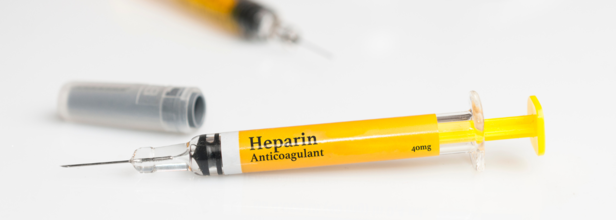
(Credit-Canva)
Increasing Screen Time For Teens Could Be Blamed For Poor Sleep And Depression
Rising screen time and the increasing health issue among teens are no coincidence. This has become a common trend among teens who cannot seem to tear away from their electronics for any reason. While some may argue they have their school assignments, study materials and other important documents on these devices, one must remember that these smart devices have now become their wallets, books, reminders etc.
While the sufficiency of these devices is responsible for the increased screen time, new study shows that it is also responsible for poor sleep as well as a rise in the numbers of depressed teens. Published in the PLOS Global Public Health journal, the study reveals the link between screen time, lack of sleep and depression among teen girls.
Researchers found that girls who used screens a lot slept worse overall. They didn't sleep as deeply, and they didn't sleep as long. Also, screens made them want to stay up later, throwing off their body's natural sleep clock. This means their bodies were not in sync with their sleep-wake cycle, making it harder to get the rest they needed. All these changes in sleep ended up causing problems for teenagers, especially when it comes to their mood.
Depression Risk in Girls
Girls are much more likely to feel sad or hopeless because of bad sleep caused by screen time. Boys also had sleep problems from using screens, but it didn’t seem to affect their mood as much. Scientists aren’t completely sure why girls are more affected, but they think it might have to do with how their bodies and brains react to changes in sleep.
The researchers looked at thousands of teens and found that girls had twice as many signs of depression as boys. They also discovered that a lot of those depression symptoms in girls, almost half, could be explained by changes in their sleep caused by screens. So, if girls are spending too much time on their phones and not sleeping well, they are at a much higher risk of feeling depressed. The researchers mentioned how this study supports the ‘screen-sleep-displacement-theory’ and the results show how it impacts several aspects of sleep simultaneously.
What Is Screen-Sleep-Displacement-Theory?
According to this theory screen time, especially before bed, displaces both bedtime and sleep, which then impacts the sleep duration and quality. It could potentially lead to negative mental health outcomes, particularly among adolescents. In Sweden, where the study took place, health officials suggest no more than two or three hours of screen time a day. This is mostly to help teenagers sleep better. The study backs up this advice, showing that less screen time could mean better sleep and fewer feelings of sadness.
If schools and parents helped teens cut back on screens, it might make a big difference in how they feel. The study also showed that most teens are using screens for about an hour more than the recommended amount. This is a problem that needs attention, as it may be having a large negative impact on the mental health of teens, especially girls.

(Credit-Canva)
Signs That Reveal You May Be Missing THIS Essential Nutrient Your Body
Going about your day-to-day life can often be hectic. You may try to cram everything you need into a day through meals, activities etc., but that is not possible. Even if you eat healthy foods, it is possible that you experience some deficiency. Often these deficiencies have misleading symptoms or signs that may lead you to think it is nothing serious. That is why it is important to make sure you are eating wholesome and well-rounded meals, as well as getting checked regularly.
Not having enough adequate essential nutrients can cause significant changes to your body. One such nutrient is Iodine. Dr. Eric Berg, popularly known as Dr. Berg on social media, who is a board-certified chiropractor based in xxx, is a well-known YouTube personality who shared his knowledge about Iodine and its deficiencies. He explained that if we don't have sufficient iodine, our bodies cannot produce enough of these vital thyroid hormones, and that can lead to various health issues and affect how our bodies function daily. Therefore, even though it's a trace element, obtaining adequate iodine is actually crucial for maintaining good health.
Signs of Low Iodine
Dr Berg explained that iodine is truly vital for the thyroid gland. This small gland in our neck performs a significant role because it influences nearly every single system within our body. Here are some strange signs of it you may be experiencing:
Outer Eyebrow Thinning
If you notice the hair on the outer edges of your eyebrows starting to get thinner or even disappear, this could be a subtle sign that your body isn't getting enough iodine, which is important for healthy hair growth.
Increased Hair Loss
Losing more hair from your head than usual, like finding extra strands on your pillow or in the shower drain, might be a signal that your iodine levels are low, as iodine helps keep hair follicles healthy and strong.
Hoarseness
If your voice starts to sound rough or hoarse for no clear reason, like a cold, it could be related to your thyroid not working properly due to low iodine, which can affect the vocal cords.
Enlarged Tongue with Indentations
If your tongue looks bigger than it used to, and you can see little dents or scalloped edges along the sides, this unusual change might be a sign that you're not getting enough iodine.
Unexplained Weight Gain
Putting on weight even though you haven't changed how much you're eating could be a sign of low iodine, as the thyroid needs iodine to help control how your body burns energy.
Symptoms Linked to Elevated Estrogen
For women, things like gaining weight around the hips and having periods that are much heavier or more painful than normal might be connected to low iodine and its effect on hormone balance.
Impaired Cognitive Function
If you're finding it harder to remember things, focus on tasks, or solve problems, it could be a sign that your iodine levels are low, as iodine is important for healthy brain function at all ages.
Can Food Improve Iodine Deficiency?
The good news is that most people can easily get enough iodine by just eating a mix of different foods. Lots of common things we eat have iodine in them. For example, milk and other dairy foods like cheese and yogurt are good sources. Eggs also have it. Plus, if you eat fish from the sea, like cod and tuna, and shellfish like shrimp and mussels, those are great ways to get this important nutrient.
Steps Taken To Improve Iodine Intake Of People
The government of India has taken many steps to help people increase their iodine intake. 21st October is recognized as World Iodine Deficiency Day to educate people about its importance.
According to the Ministry of Health and Family Welfare, a decision to iodize all edible salts in India was started in 1986. By 1992 their aim was to completely iodize all edible salt, which they achieved. As of 2024, India produced 65 lakh metric tonnes of iodized salt to meet the needs of the country's citizens.

(Credit-Canva)
Your Lifestyle Choices May Be Causing You Dopamine Deficiency
While you may not realize it, whenever you are feeling a certain way a lot of your body’s hormones are at work. Whether it is anger, sadness, or happiness, hormones like cortisol and dopamine are at work. Whenever you feel giddy or satisfied, it is basically your body pushing dopamine into your body. These triggers do not have to be extreme or funny, it could be a simple meme you saw, or a new follow. Dopamine plays a very important role in your day-to-day life. However, what happens when you stop feeling excited or happy when good things happen to you?
What if you stop seeing the point of doing certain things you enjoyed because they no longer bring you so much joy? You could be going through a dopamine deficiency.
What Happens When Your Brain Doesn’t Have Enough Dopamine?
The Cleveland Clinic explains that if your brain isn't making enough dopamine, you might start feeling like you have no energy or drive to do things. You could become more forgetful and even feel anxious because this important feel-good chemical is low.
In serious illnesses like Parkinson's disease, the brain loses cells that make dopamine, leading to a big drop in its levels. Some drugs, like cocaine, cause a huge, quick release of dopamine, but they also damage the parts of your brain that receive dopamine, making it harder to feel pleasure naturally over time and leading to addiction.
Could Your Lifestyle Choices Affect Your Body’s Dopamine?
The way you live your life every day can also change how much dopamine your brain makes. Eating a lot of unhealthy, saturated fats, not getting enough sleep night after night, and constantly feeling stressed out have all been shown to make your brain produce less dopamine. This means that simple things you do regularly can have a real impact on your motivation, mood, and overall well-being by affecting this important brain chemical. Taking care of your body and mind can help keep your dopamine levels healthy.
Sleep And Depression
According to a 2012 study in the Journal of Neuroscience explained that the dopamine rushes you get from seeing new posts or watching videos can actually keep your brain wide awake when it should be winding down. If you're already not getting enough sleep, it creates an even bigger problem. Studies have found that when you're sleep-deprived, your brain actually has fewer places for dopamine to attach, called receptors. This can make you feel much more tired, slow, and less alert throughout the following day because your brain isn't using dopamine as effectively as it should.
Stress And Dopamine
A 2012 review in Neuroscience and Biobehavioral Reviews explains that dopamine also plays a key role in how you handle stressful situations, and it depends on whether you feel like you have any control over what's happening. When you face something that feels overwhelming, your dopamine levels might initially go up to help you try and cope with the pressure. However, if the stress continues and feels like too much to handle, those dopamine levels can then crash and stay low.
Diet & Dopamine
When you're feeling down or stressed, you might often reach for comforting foods, but what you eat can actually affect your dopamine levels. The International Journal of Obesity Supplements explain that eating a diet that's high in unhealthy fats can actually keep your dopamine levels lower over time. Research in animals has even shown that when mothers eat a lot of high-fat foods during pregnancy, it can change the dopamine levels in their babies, making them crave even more fatty and sugary foods later in life

Credits: Canva
Trump's Tariffs Could Make This Life-Saving Anticoagulant Harder To Access
Heparin, an anticoagulant first discovered in 1916, remains one of the most widely used drugs in hospitals today. It plays a crucial role in preventing and treating blood clots, especially in patients undergoing surgery, dialysis, or those dependent on intravenous lines for nutrition or medication. Its rapid action and reversibility make it a go-to option for doctors when managing clot-related complications.
Unlike other anticoagulants, heparin is typically administered intravenously or through injections. This makes it irreplaceable for patients who cannot tolerate oral medications. For many, including those with complex health conditions and central lines, it can mean the difference between life and death.
The Global Supply Chain Behind Heparin
Heparin is primarily derived from the mucosal lining of pig intestines. While several countries are involved in its production, China dominates the supply chain due to its large pig population and established infrastructure for processing animal tissue. After collection, the raw material undergoes purification and rigorous testing before it is ready for medical use.
Because of this dependence on Chinese-sourced ingredients, any disruption—whether due to disease outbreaks, policy changes, or geopolitical tensions—can ripple through the entire supply chain. A notable example occurred in 2008 when tainted heparin led to dozens of deaths in the U.S. after a shortage pushed suppliers to cut corners.
The Tariff Threat
Recently, concerns have mounted that new tariffs on pharmaceutical imports from China could drive up the price of drugs like heparin. Though exact tariff rates are yet to be confirmed, the mere threat has raised alarms among health professionals.
Tariffs could increase manufacturing costs for generic medications, including heparin, which typically operate on thin profit margins. Unlike branded drugs, the prices of generics are regulated under U.S. laws, meaning manufacturers have limited flexibility to pass on the increased costs. In some cases, suppliers may withdraw from the market altogether if production becomes unprofitable.
A Fragile Domestic Backup Plan
The U.S. currently lacks the infrastructure to fully meet its own demand for heparin. Building a domestic supply chain would require major investments in facilities, sourcing animal tissue locally, and streamlining regulatory approvals. Efforts to diversify sourcing—such as reintroducing bovine-based heparin—have been discussed, but such measures are still in early stages and not yet viable at scale.
Even if temporary stockpiles exist, experts warn they wouldn’t last long in the event of a supply squeeze. Hospitals might be forced to seek alternative anticoagulants, which may not be suitable or effective for every patient.
Potential Impact on Patients and Hospitals
For hospitals, a shortage or price spike in heparin would strain operations and complicate patient care. Making heparin in-house, while possible, is time-consuming and less efficient. More concerning, however, is the risk to patients who depend on this drug daily and for whom no alternatives exist.
Tariffs may appear to be about economics or trade leverage, but in the case of heparin, the real cost could be measured in lives.
© 2024 Bennett, Coleman & Company Limited

